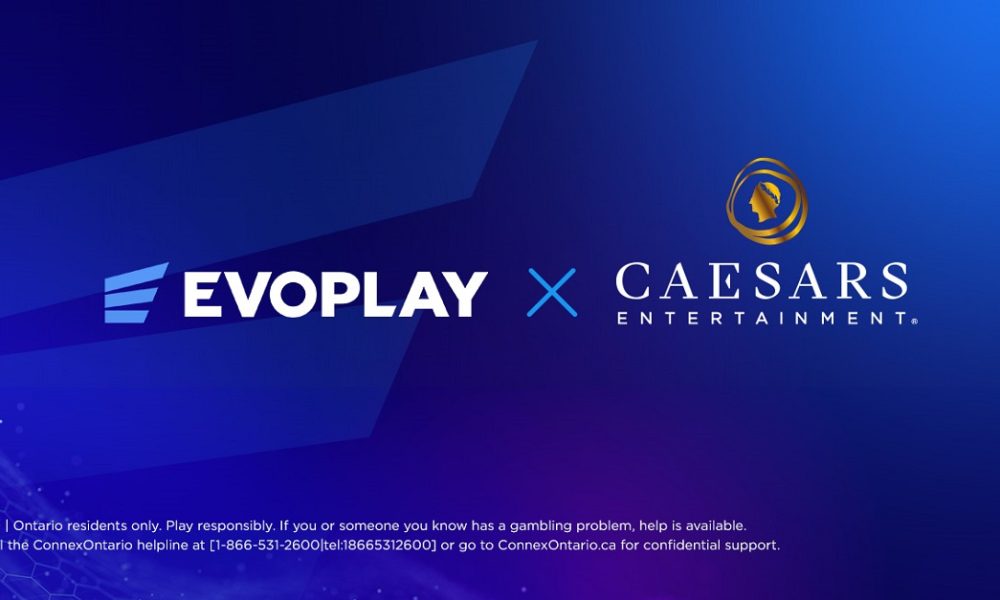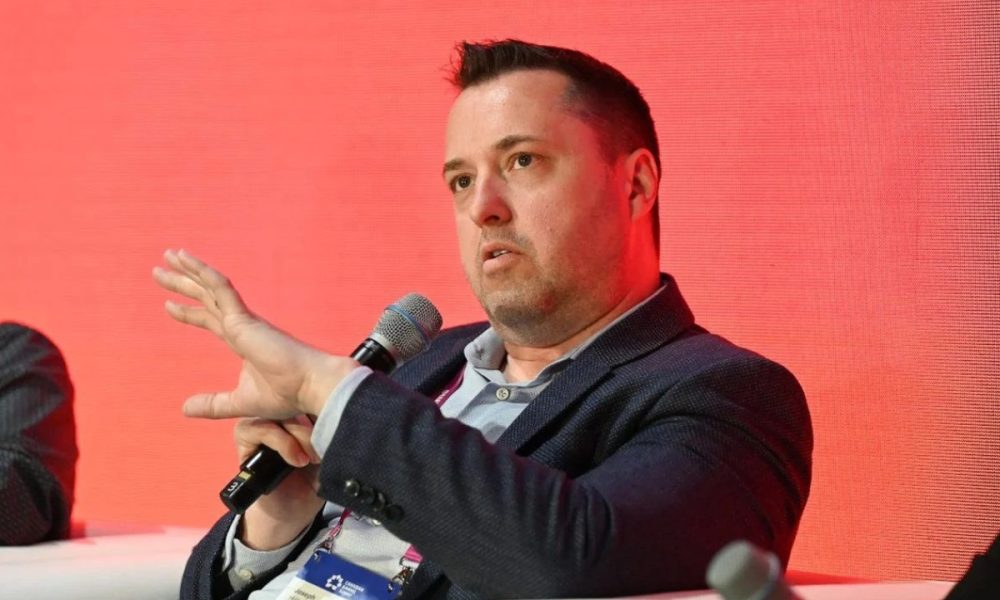

Canada
What We Can Learn From the US States That Have Legalized iGaming
For many, gambling is an emotive subject. Some people love it. The anticipation, the thrill, and what-ifs that form while waiting for the result. However, some people and communities object to gambling on moral grounds; these could be related to religion, morals, or traditions. The USA has always had a strange relationship with gambling ranging from total prohibition to Las Vegas marketing itself as the world’s gambling capital. Ever since the Supreme Court overturned the 1992 Professional and Amateur Sports Protection Act that had served as a blanket prohibition on state-sponsored sports betting, state after state has opened up to legalized gambling. Before the ban was lifted, it was estimated that Americans wagered $150 billion illegally every year.
That $150 billion figure illustrates that banning something does not make it go away; it simply drives it underground. While some states like Utah and Hawaii will never legalize gambling, many others are looking at the trailblazer states like New Jersey or overseas to Europe and seeing that regulated gambling can bring significant revenue to state coffers.
The state of New Jersey pushed for the change to the law, and New Jersey immediately passed laws that allowed Monmouth Park to begin to take sports bets. The state had licensed legalized online casinos and poker rooms in 2013, and by August 2018, the first online sports books in the state were opened.
We can learn from New Jersey alone that gambling is big business. In September 2018, the state handled $1.01 billion in wagers. The lion’s share of this came from igaming at nine casinos and three racetracks. In addition, according to the New Jersey Division of Gaming Enforcement, $92.7 million was spent online.
What really matters to the states that have legalized online gambling is the revenue it generates for private operators and their shareholders and the taxes levied for the state. For example, the latest figures from the New Jersey Division of Gaming Enforcement are as follows:
“For the month of June, Internet Gaming Win reported by casinos and their partners was $133.1 million, reflecting growth of 24.4% compared to $107.1 million for the prior period. For the year-to-date period, Internet Gaming Win reported by casinos and their partners was $814.5 million, reflecting growth of 28.4% compared to $634.2 million for the prior year-to-date period.
Sports Wagering Gross Revenue: Sports Wagering Gross Revenue reported by casinos, racetracks, and their partners was $39.2 million for June 2022, reflecting a 44.9% decrease when compared to $71.3 million in the prior period. Sports Wagering Gross Revenue reported by casinos, racetracks, and their partners was $308.7 million for the year-to-date, reflecting a 16.2% decline when compared to $368.3 million for the prior period. ”
UK companies had highly developed gaming software and technology. The best NJ online casino was able to integrate the existing games onto its platform to get it up and running quickly. The European operators had been working in legalized markets for years. So rather than try and reinvent the wheel, states that have legalized iGaming have imported the technology and business acumen from businesses that already knew what they were doing.
This model was followed up by all the states who went on to legalize iGaming. There are now 21 states where sports betting is legal. In Connecticut, Delaware, Michigan, New Jersey, Pennsylvania, and West Virginia, residents can play online casino games, including table games like blackjack and roulette and a wide variety of online slots. The technology behind these games comes from European brands. They already have an extensive portfolio of games backed up by the top software providers in the world. They also have developed the best algorithms to spot potential gamblers and prevent gambling harms where possible.
There is constant innovation in this market. Companies are constantly bringing out new slot games to ensure that there is something for players to enjoy. In addition to the enhanced graphics and animations which make exciting virtual gaming online possible, gamblers can now play games with a live dealer without leaving the comfort of their own homes.
While the US might have been behind the UK and other countries in legalizing online gambling, the US land-based casinos are now looking to buy up the European pioneers. MGM has recently agreed to purchase Stockholm-headquartered online slots company LeoVegas.
The states that have legalized iGaming are finding that they are not only gaining revenues through taxation but are attracting tourists’ money too. Americans no longer have to go exclusively to Las Vegas to be able to enjoy a flutter. To gamble legally, a player must be physically present in their gambling state. They do not have to be permanent residents. This means that sports fans can enjoy a gamble on the game’s outcome. As well as the revenue from the gambling tax, a state like Pennsylvania can also benefit from hotel revenues from people attending the game or placing a bet from their holiday accommodation.
The most significant barrier to entry for operators is the high cost of doing business in a state like Pennsylvania. The tax rate in the state is effectively 36%, and operators have to pay an upfront $10 million licensing fee. As more states open up, will they need to start competing against each other?
Canada
absolutebet Secures AGCO Registration as an Internet Gaming Operator in Ontario

Internet Gaming Operator by the Alcohol and Gaming Commission of Ontario (AGCO).
This significant milestone authorizes absolutebet to offer regulated iGaming services in Ontario’s legal market under the oversight of AGCO and iGaming Ontario (iGO).
The registration marks a key step in absolutebet’s mission to bring a trusted, responsible, and innovative online casino experience to Ontario players. absolutebet is committed to operating with integrity and transparency, meeting all provincial standards for player protection, responsible gambling, anti-money laundering, and game integrity.
“Securing AGCO registration is more than a milestone—it’s the start of absolutebet’s journey in one of the most exciting regulated markets in the world,” said Chen Truman, Founder of absolutebet. “We are building a brand that will grow with the Ontario community and set the stage for future expansion.”
On the regulatory milestone, Krisztina Kalla, Legal & Regulatory Compliance Advisor of absolutebet, commented: “I’m incredibly proud to see all the hard work behind this license pay off. Securing AGCO registration has taken months of preparation and close collaboration with regulators and partners. I am very happy to see the result of that work, and even more excited as we move into the launch phase and open up the absolutebet community to Ontario players in a fun and responsible way.”
Ontario is recognized as one of the most competitive and fast-growing regulated iGaming markets in North America. With AGCO registration secured, absolutebet will move forward with the final stages of its iGO onboarding process in preparation for launch.
The post absolutebet Secures AGCO Registration as an Internet Gaming Operator in Ontario appeared first on Gaming and Gambling Industry in the Americas.
Alex Malchenko Head of Sales at Evoplay
Evoplay strengthens Ontario presence in partnership with Caesars Entertainment

Evoplay, the award-winning game development studio, has partnered with Caesars Entertainment to expand its footprint in the Canadian market, following its initial entry earlier this year. The partnership integrates 20 of the studio’s top-performing titles onto Caesars Palace Online Casino, Horseshoe Online Casino and Caesars Sportsbook & Casino in Ontario, including fan-favourites such as Hot Triple Sevens, Triple Chili, and The Greatest Catch Bonus Buy.
Having announced its official entrance into Ontario in March, the collaboration with Caesars marks a significant step in Evoplay’s local strategy. Further standout releases, such as Inner Fire Bonus Buy and Hot Volcano, also launched as part of the initial package, with additional player favourites, including Fruit Nova and Ice Mania.
The collaboration underlines Evoplay’s commitment to working with leading operators to deliver high-quality content tailored to regional audiences.
Alex Malchenko, Head of Sales at Evoplay, said: “Launching with Caesars in Ontario marks a key milestone in our North American strategy.
“It reflects both the strength of our portfolio and our commitment to providing innovative, high-performing content to operators of the highest caliber.”
Ricardo Cornejo Rivas, Vice President of Online Gaming at Caesars Digital, said: “Evoplay brings a fresh and dynamic approach to online gaming, which we’re excited to offer to our players in Ontario. This portfolio of standout titles adds to our growing content library and furthering our ongoing goal of delivering top-tier entertainment experiences to our players.”
The post Evoplay strengthens Ontario presence in partnership with Caesars Entertainment appeared first on Gaming and Gambling Industry in the Americas.
Canada
iGaming Ontario Appoints Joseph Hillier as its New President and CEO

The iGaming Ontario Board of Directors has announced Joseph Hillier as the organization’s new President and Chief Executive Officer, effective September 8, 2025. Joseph’s depth in the Ontario igaming market combined with successful public and private sector careers make him the ideal President and CEO at this critical point in iGaming Ontario’s growth.
Joseph was most recently Chief Strategy Officer and Corporate Secretary at the Alcohol and Gaming Commission of Ontario (AGCO), where he delivered significant strategic and regulatory initiatives across the province’s alcohol, cannabis, gaming, and horse racing sectors. Prior to the AGCO, he served as Chief of Staff to Ontario Attorney General Hon. Doug Downey and led the development, launch and implementation of Canada’s first private sector-driven igaming market and the creation of iGaming Ontario. Joseph also spent more than a decade working in the financial and legal services sectors.
The Board expressed its sincere thanks to David Smith for serving as Interim President and Chief Executive Officer since Martha Otton’s retirement.
The post iGaming Ontario Appoints Joseph Hillier as its New President and CEO appeared first on Gaming and Gambling Industry in the Americas.
-

 gaming3 years ago
gaming3 years agoODIN by 4Players: Immersive, state-of-the-art in-game audio launches into the next generation of gaming
-
EEG iGaming Directory8 years ago
iSoftBet continues to grow with new release Forest Mania
-
News7 years ago
Softbroke collaborates with Asia Live Tech for the expansion of the service line in the igaming market
-
News7 years ago
Super Bowl LIII: NFL Fans Can Bet on the #1 Sportsbook Review Site Betting-Super-Bowl.com, Providing Free Unbiased and Trusted News, Picks and Predictions
-
iGaming Industry8 years ago
Rick Meitzler appointed to the Indian Gaming Magazine Advisory Board for 2018
-
News7 years ago
REVEALED: Top eSports players set to earn $3.2 million in 2019
-
iGaming Industry8 years ago
French Senator raises Loot Boxes to France’s Gambling Regulator
-
News7 years ago
Exclusive Interview with Miklos Handa (Founder of the email marketing solutions, “MailMike.net”), speaker at Vienna International Gaming Expo 2018








